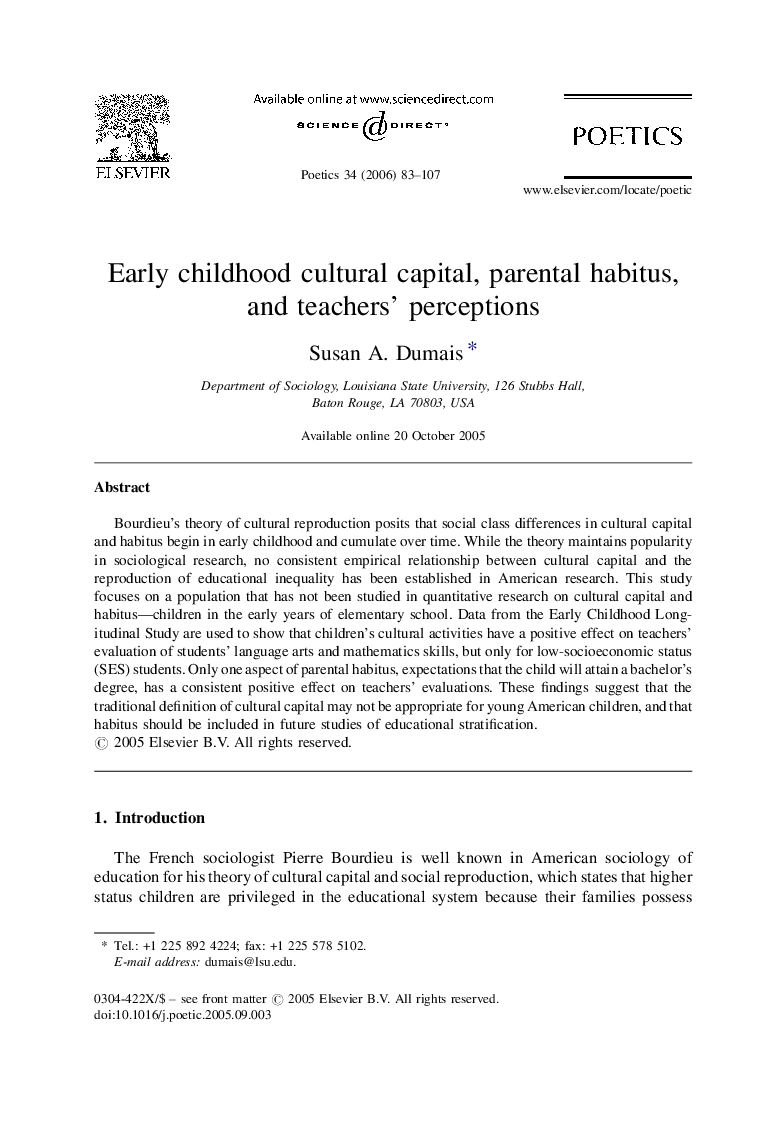| Article ID | Journal | Published Year | Pages | File Type |
|---|---|---|---|---|
| 1128752 | Poetics | 2006 | 25 Pages |
Bourdieu's theory of cultural reproduction posits that social class differences in cultural capital and habitus begin in early childhood and cumulate over time. While the theory maintains popularity in sociological research, no consistent empirical relationship between cultural capital and the reproduction of educational inequality has been established in American research. This study focuses on a population that has not been studied in quantitative research on cultural capital and habitus—children in the early years of elementary school. Data from the Early Childhood Longitudinal Study are used to show that children's cultural activities have a positive effect on teachers’ evaluation of students’ language arts and mathematics skills, but only for low-socioeconomic status (SES) students. Only one aspect of parental habitus, expectations that the child will attain a bachelor's degree, has a consistent positive effect on teachers’ evaluations. These findings suggest that the traditional definition of cultural capital may not be appropriate for young American children, and that habitus should be included in future studies of educational stratification.
